(This is a dual language page in English (first) and മലയാളം (second). ഇത് ഇംഗ്ലീഷിലും (ആദ്യം) മലയാളത്തിലും (രണ്ടാമത്) ഉള്ള ഒരു ദ്വിഭാഷാ പേജാണ്.)
One can trace the family’s lineage back twenty (20) generations through the early 1600s. Although the Chaturvarna of Kshatriya did not exist in Kerala in the conventional sense - by supplying armaments, infantry, and cavalry to the kingdom, the Alummoottil® family fulfilled military responsibilities towards the nation. The chieftains (Karanavars) of the family were martial arts (Kalaripayattu) experts and Generals of various divisions within the king’s army. The title Channar was conferred by the Maharaja to the members of the Alummoottil® family.
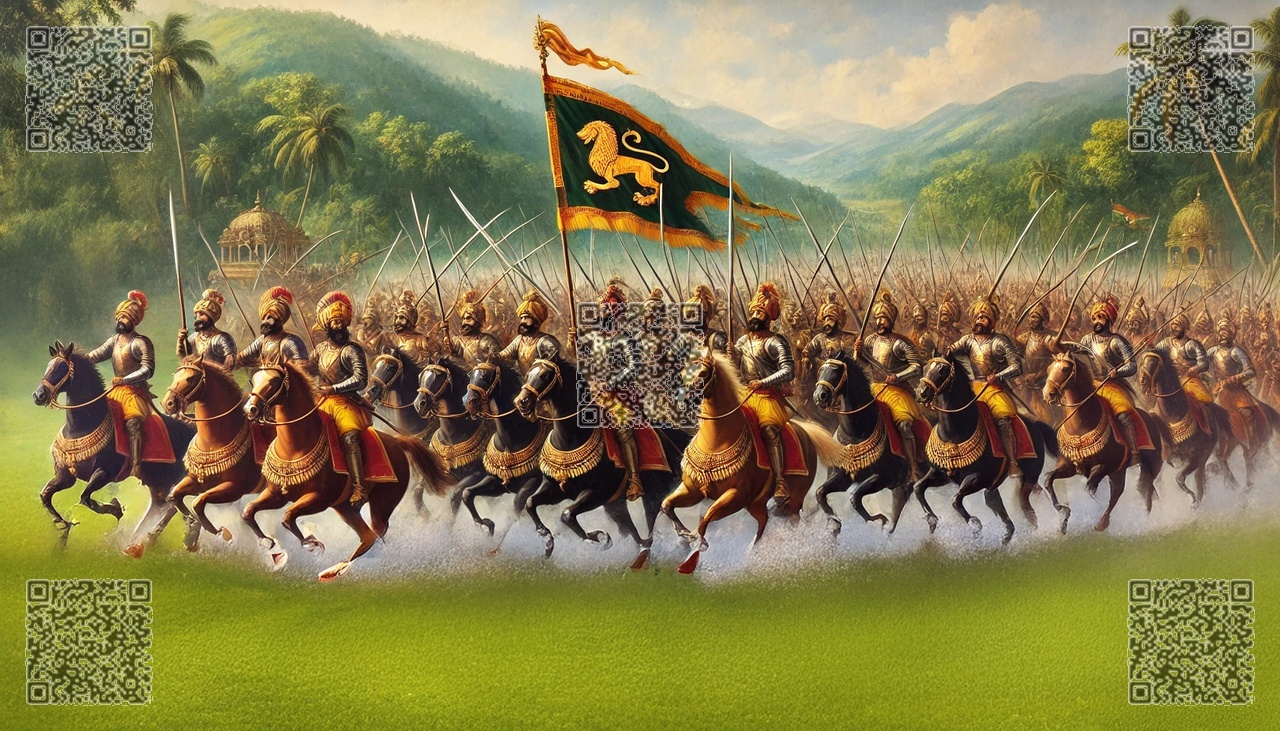
Thakazhi - in his novel Kayar - references an Alummoottil® Chieftain, who commonly was mistaken as the Diwan of Travancore. Besides the king and the Diwan, Kochu Kunju Channar was the third person in the kingdom to own a motor car. Namboodiris and other Brahmins stood up and bowed as he passed by, mistakenly believing it was the Raja or the Diwan.
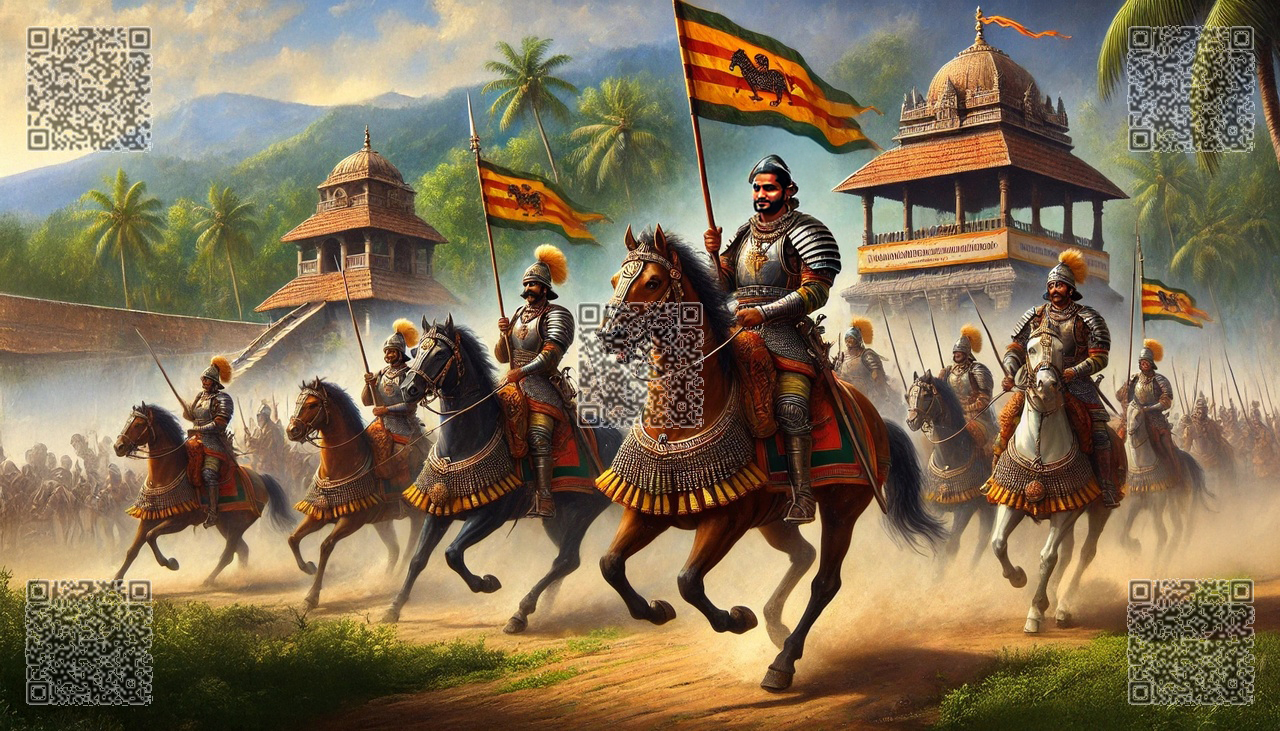
In the 1700s, Alummoottil® family was the sole supplier of heavy cavalry regiments - Mounted Soldiers, Lances, and War Horses - to the erstwhile Odanad kingdom, ruled by the Kayamkulam Maharaja. Besides Cavalry Corps, Alummoottil® warriors commanded expeditionary infantry regiments and intelligence platoons within the Kayamkulam Army’s battle formation.
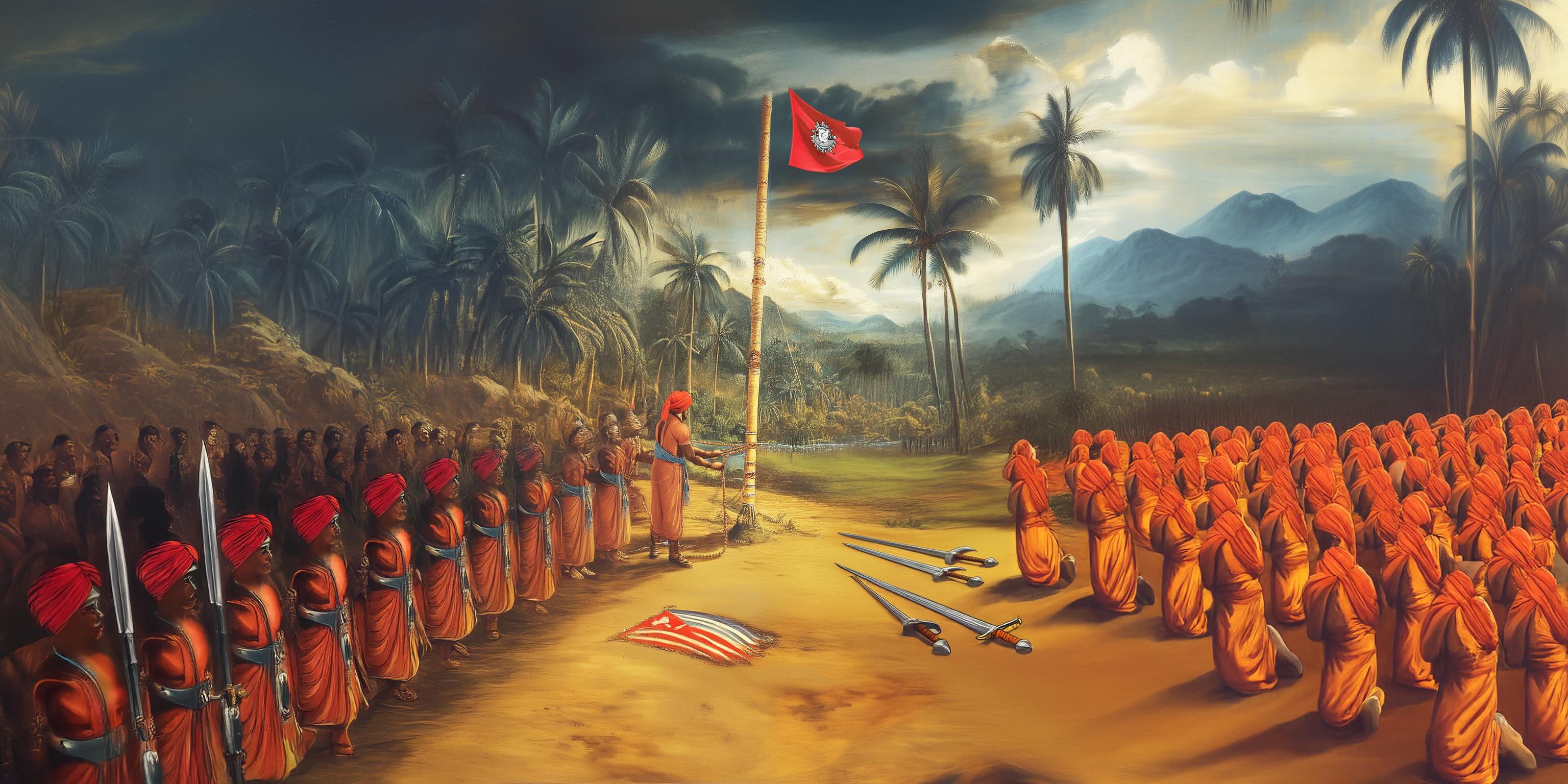
This prestige they enjoyed ended abruptly when King Marthanda Varma annexed the Kayamkulam kingdom to Travancore.
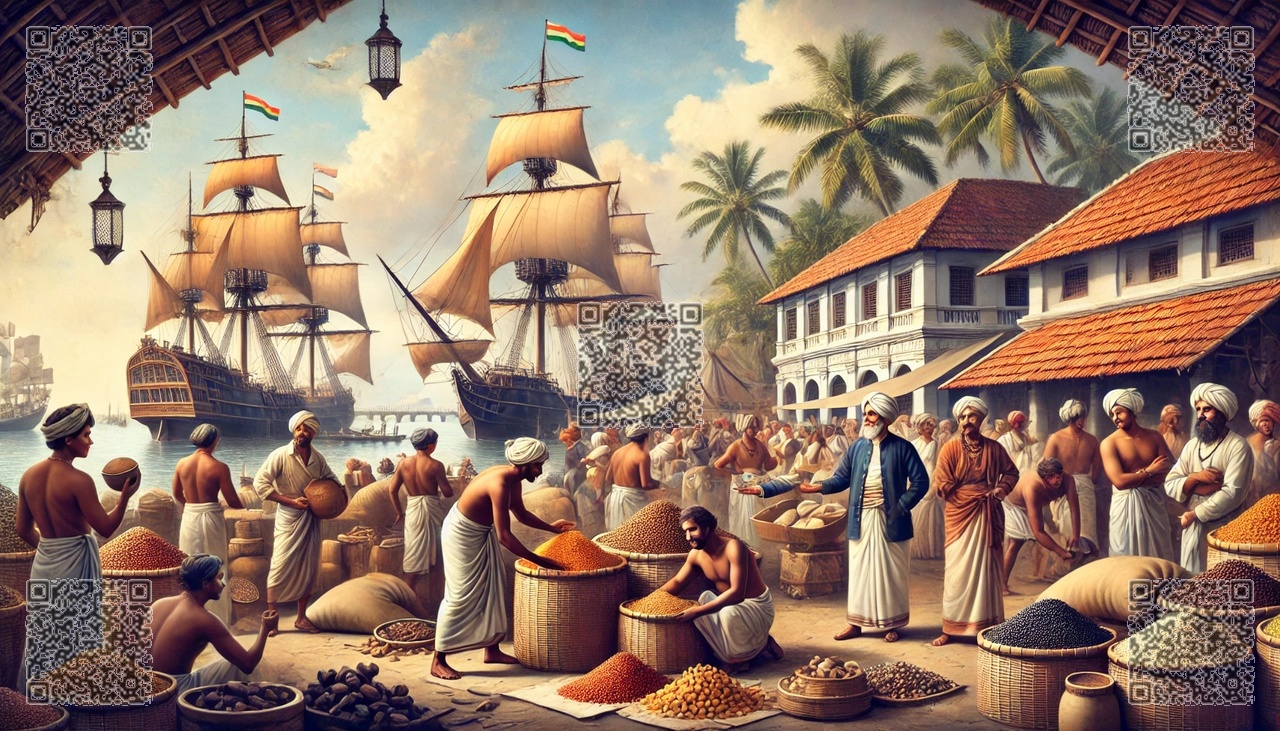
Only a few years later, King Marthanda Varma recognized that he could not fortify the Odanad area without the logistic and operational military expertise of Alummoottil®. Subsequently, the king summoned the Alummoottil® Chieftain to his durbar; and asked him to pledge support openly. The chieftain agreed on the conditions that the Kayamkulam king’s life be spared and that the dissolved military ranks of the Alummoottil® family members be restored. Marthanda Varma was surprised by the insistence of the chieftain and reluctantly agreed to the conditions. That reigned in the next era of cooperation between Alummoottil® and the kingdom of Travancore.
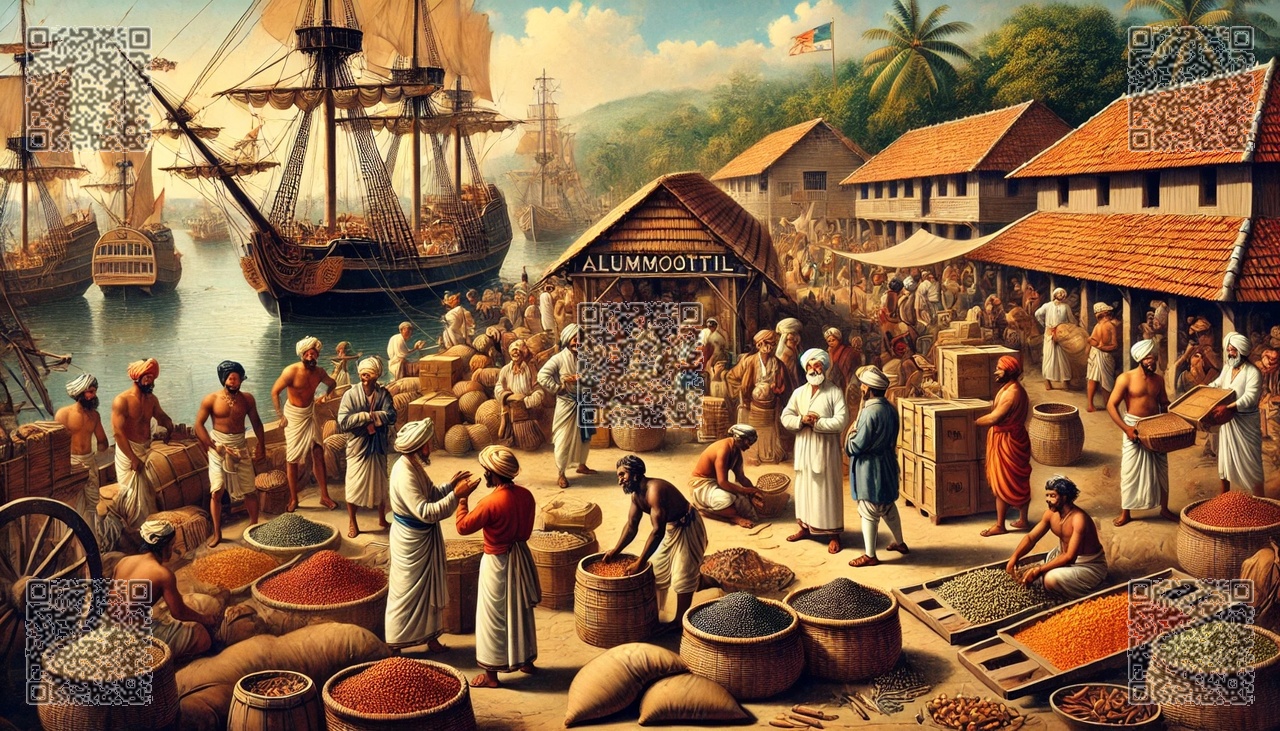
Realizing the delicacy of military hierarchy when kingdoms fall and rise, Alummoottil® chieftains started to focus more of their resources on commerce and international trade. By the 1750s, most of the spice trade between Europe and southern Kerala flowed through the warehouses of Alummoottil® Tharavad. There are many references in mainstream movies that Alummoottil® Tharavad was the highest tax-paying unit within the Travancore kingdom. AP Udayabhanu’s novel Ente Kadha Illaymakal suggests that by the early 1800s, the family was wealthier than the king of Travancore.
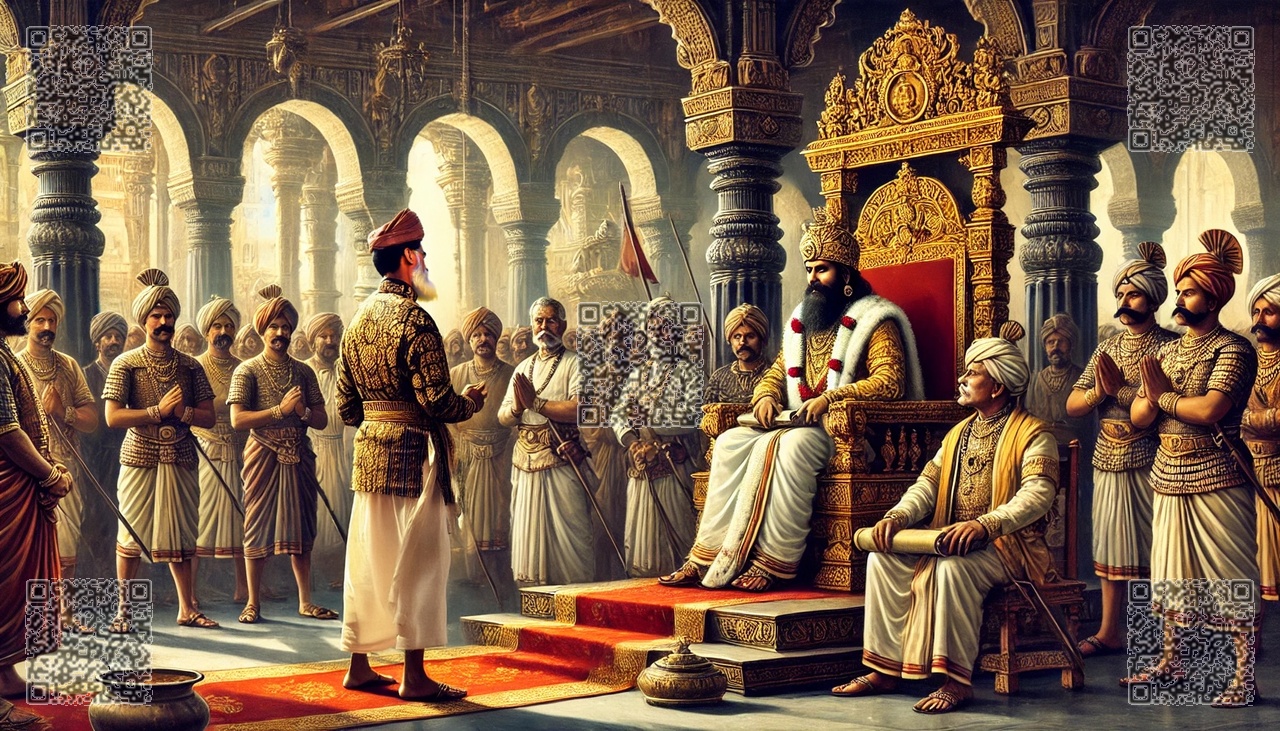
The onset of the 20th century saw significant fissures within the family. The Marumakkathayam (matrilineal) system, followed by the family, was challenged by the socially popular and contemporary Makkathayam (patrilineal) system. The fault lines formed culminated in the assassination of Kochu Kunju Channar, the second-last chieftain of the Alummoottil® family.
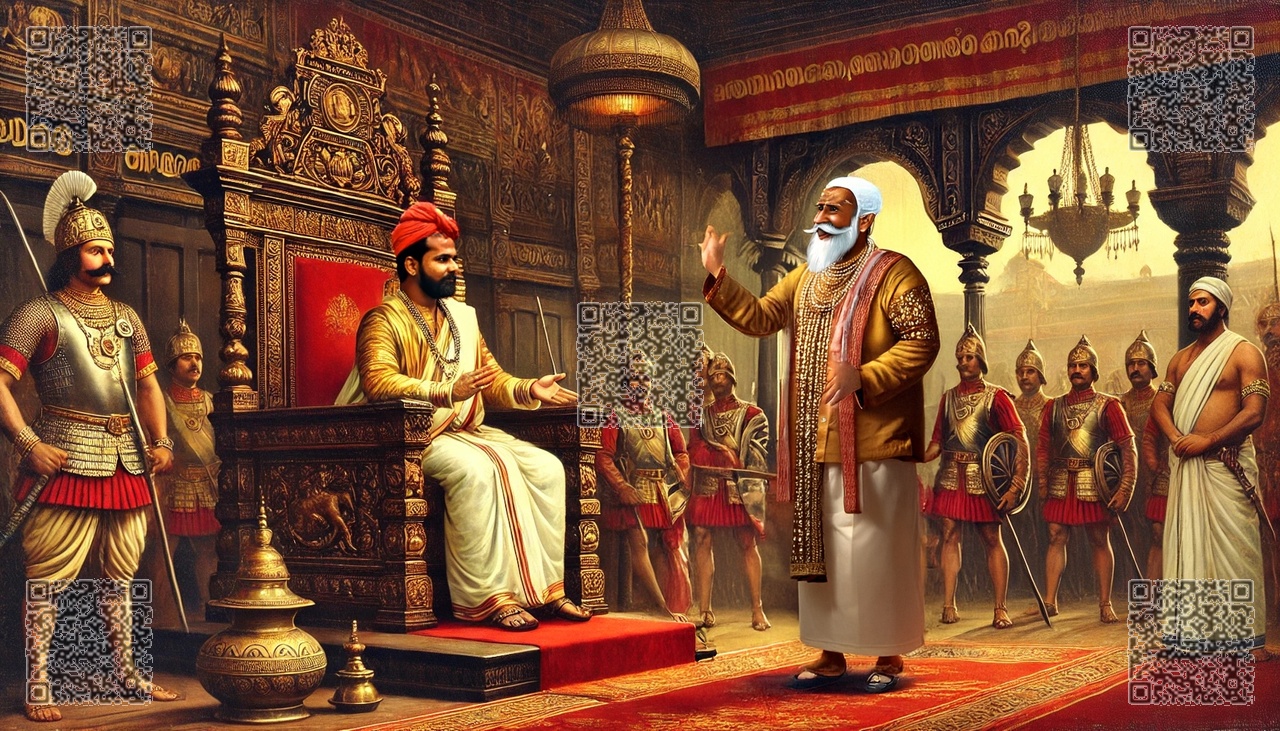
AP Sreedharan Channar was tried in the Kollam (Quilon) District court - since Alappuzha (Alleppey) was not a district at the time. AP Sreedharan vs. Thiruvathamkur (Travancore) Sarkar (Government) resulted in a judgment against AP Sreedharan on 20th February 1922. He was sentenced to death. The family filed appeals in the Travancore High Court, and directly with Sreemoolam Thirunal (King). Unfortunately, the King who was close to Kochu Kunju Channar rejected the appeal.
AP Shreedharan Channar (the nephew of Kochu Kunju Channar), was executed in late 1922 by the Kingdom of Travancore. His accomplices were given jail sentences. The subsequent and the last Karanavar of Alummoottil®, Kochu Krishnan Channar, spearheaded the dissolution of the family, through a Bhagha Patram (dissolution agreement) in the year 1927. The 18 male and female members of the family jointly decided and signed the agreement, ending perhaps the wealthiest family in contemporary Kerala history.
1600-കളുടെ ആരംഭം മുതൽ ഇരുപത് (20) തലമുറകൾ വരെയുള്ള കുടുംബത്തിന്റെ ചരിത്രം ലിഖിതമാണ്. പരമ്പരാഗത അർത്ഥത്തിൽ കേരളത്തിൽ ക്ഷത്രിയ ചാതുർവർണ്ണം നിലവിലില്ലായിരുന്നു - രാജ്യത്തിന് ആയുധങ്ങൾ, കാലാൾപ്പട, കുതിരപ്പട എന്നിവ വിതരണം ചെയ്തുകൊണ്ട്, ആലുംമൂട്ടിൽ കുടുംബം രാഷ്ട്രത്തിന്റെ സൈനിക ഉത്തരവാദിത്തങ്ങൾ ആണ് പൂർവ്വകാലത് നിർവഹിച്ചിരുന്നത്. കുടുംബത്തിലെ മുഖ്യന്മാർ (കാരണവർ) ആയോധനകലകളിൽ (കളരിപ്പയറ്റ്) വിദഗ്ധരും രാജാവിന്റെ സൈന്യത്തിലെ വിവിധ വിഭാഗങ്ങളുടെ സേനാത്തലവരും ആയിരുന്നു.
വേണാട്, ദേശിങ്ങനാട്, കൊട്ടാരക്കര, ഓടനാട്, പന്തളം, ഇളയേടത്തു സ്വരൂപം, ആറ്റിങ്ങൽ സ്വരൂപം, കരുനാഗപ്പള്ളി സ്വരൂപം, കാർത്തികപ്പള്ളി സ്വരൂപം, പുറക്കാട്, തെക്കുംകൂർ, വടക്കുംകൂർ എന്ന പന്ത്രണ്ട് രാജകുടുംബങ്ങൾ ചേർന്നാണ് ആലുംമൂട്ടിൽ കുടുംബത്തിലെ അംഗങ്ങൾക്ക് ചാന്നാർ എന്ന പദവി നൽകിയത്.
തകഴി കയർ എന്ന നോവലിൽ - തിരുവിതാംകൂർ ദിവാൻ എന്ന് തെറ്റിദ്ധരിക്കപ്പെട്ടിരുന്ന ആലുംമൂട്ടിൽ കാരണവരെ പറ്റി പരാമർശിക്കുന്നുണ്ട് . രാജാവിനും ദിവാനും പുറമേ, കൊച്ചുകുഞ്ഞു ചാന്നാർക്ക് മാത്രമേ മോട്ടോർ കാർ സ്വന്തമായുണ്ടായിരുന്നുള്ളു. അദ്ദേഹം കടന്നുപോകുമ്പോൾ അത് രാജാവോ ദിവാനോ ആണെന്ന് തെറ്റിദ്ധരിച്ചു നമ്പൂതിരിമാരും മറ്റ് ബ്രാഹ്മണരും എഴുന്നേറ്റു നിന്ന് വണങ്ങി ഇളിഭ്യരായ പല കഥകളുമുണ്ട്.
1700-കളിൽ, കായംകുളം മഹാരാജാവ് ഭരിച്ചിരുന്ന പഴയ ഓടനാട് രാജ്യത്തേക്ക് കുതിരപ്പട റെജിമെന്റുകൾ - അശ്വസൈനീകർ, പോർക്കുതിരകൾ - എന്നിവ സംഭരിച്ചു കൊടുത്തത് ആലുംമൂട്ടിൽ കുടുംബമായിരുന്നു. കുതിരപ്പടയ്ക്ക് പുറമേ കായംകുളം സൈന്യത്തിന്റെ അർത്ഥനാവികസേന (മറീൻ, ആംഫിബിയസ്) റെജിമെന്റുകളെയും ഇന്റലിജൻസ് പ്ലാറ്റൂണുകളും ആലുംമൂട്ടിൽ യോദ്ധാക്കൾ നയിച്ചിരുന്നു. അറുപത്തി നാല് കളരികളായിരുന്നു ആലുംമൂട്ടിൽ കുടുംബം ഇതിനായി പ്രവർത്തിപ്പിച്ചിരുന്നത്.
മാർത്താണ്ഡവർമ്മ രാജാവ് കായംകുളം രാജ്യം തിരുവിതാംകൂറിനോട് പിടിച്ചടക്കിയതോടെ ആലുമൂട്ടിൽ ആസ്വദിച്ചിരുന്ന സൈനീക പ്രതാപം പെട്ടെന്ന് അവസാനിച്ചു. കളരികൾ നടത്തുന്നത് മാർത്താണ്ഡവർമ്മ നിരോധിച്ചു.
ഏതാനും വർഷങ്ങൾക്ക് ശേഷം, തെക്കുംകൂർ വടക്കുംകൂർ പിടിച്ചടക്കാൻ പലതവണ വിഫലശ്രമം നടത്തിയ മാർത്താണ്ഡവർമ്മ, വേമ്പനാട് കായൽ പ്രദേശത്തെ ചതുപ്പു ഭൂമിയിൽ കാലാൾപ്പടക്കും, കുതിരപ്പടക്കും, നാവികസേനക്കും പരിമിതികളുണ്ടെന്ന് മനസ്സിലാക്കി. ആലുംമൂട്ടിൽ സൈന്യത്തിന്റെ അർത്ഥനാവിക പോരാളികളുടെ മുറകൾ തനിക്കനുകൂലമാണെന്ന് മനസ്സിലാക്കിയ അദ്ദേഹം ആലുംമൂട്ടിൽ ചാന്നാരെ തിരുവതാംകൂർ കൊട്ടാരത്തിലേക്ക് ക്ഷണിച്ചു യുദ്ധവിരാമക്കരാർ ഒപ്പിടുകയും, ചാന്നാന്മാരുടെ സൈനീക പദവികൾ തിരിച്ചു നൽകുകയും, അവരെ തന്റെ സൈന്യവ്യൂഹങ്ങൾ നയിക്കാൻ ക്ഷണിക്കുകയും ചെയ്തു. ആലുംമൂട്ടിലും തിരുവിതാംകൂർ രാജ്യവും തമ്മിലുള്ള 150 വർഷത്തെ രാജ്യസഖ്യം അങ്ങനെയാണ് തുടങ്ങുന്നത്.
രാജ്യങ്ങൾ തകരുകയും ഉയരുകയും ചെയ്യുമ്പോൾ സൈനിക ആന്തരഘടനകൾ ഇനിയും തകരാൻ അപകട സാധ്യത ഉണ്ടെന്ന് മനസ്സിലാക്കിയ ആലുംമൂട്ടിൽ തലവന്മാർ അവരുടെ കുടുംബ സ്രോതസ്സുകൾ വാണിജ്യത്തിലും അന്താരാഷ്ട്ര വ്യാപാരത്തിലും ശ്രദ്ധ കേന്ദ്രീകരിക്കാൻ തുടങ്ങി. 1750-കളോടെ, യൂറോപ്പിനും തെക്കൻ കേരളത്തിനും ഇടയിലുള്ള സുഗന്ധവ്യഞ്ജന വ്യാപാരത്തിന്റെ ഭൂരിഭാഗവും ആലുംമൂട്ടിൽ® തറവാടിന്റെ വെയർഹൗസുകളിലൂടെയായിരുന്നു. തിരുവിതാംകൂർ രാജ്യത്തിലെ ഏറ്റവും കൂടുതൽ നികുതി നൽകുന്ന യൂണിറ്റായിരുന്നു ആലുംമൂട്ടിൽ തറവാട് എന്ന് മുഖ്യധാരാ സിനിമകളിൽ ധാരാളം പരാമർശങ്ങളുണ്ട്. എ.പി. ഉദയഭാനുവിന്റെ എന്റെ കഥ ഇല്ലായ്മകൾ എന്ന നോവൽ സൂചിപ്പിക്കുന്നത് 1800 കളുടെ തുടക്കത്തിൽ, തിരുവിതാംകൂർ രാജാവിനേക്കാൾ സമ്പന്നമായിരുന്നു ആലുംമൂട്ടിൽ,
ഇരുപതാം നൂറ്റാണ്ടിന്റെ ആരംഭത്തിൽ കുടുംബത്തിനുള്ളിൽ വിള്ളലുകൾ ഉണ്ടായി. മക്കത്തായ (പിതൃപരമ്പര) സമ്പ്രദായം മരുമക്കത്തായ (മാതൃപരമ്പര) സമ്പ്രദായത്തെ വെല്ലുവിളിച്ചു. ആലുംമൂട്ടിൽ കുടുംബത്തിലെ അവസാനത്തെ രണ്ടാം കാരണവരായ കൊച്ചു കുഞ്ഞു ചാന്നാരെ അനന്തിരവർ ചേർന്ന് വധിച്ചു.
ആലപ്പുഴ അന്ന് ഒരു ജില്ലയല്ലാത്തതിനാൽ, എ.പി. ശ്രീധരൻ ചാന്നാർ കൊല്ലം ജില്ലാ കോടതിയിൽ വിചാരണ ചെയ്യപ്പെട്ടു. എ.പി. ശ്രീധരൻ vs. തിരുവതംകൂർ സർക്കാർ കേസിൽ 1922 ഫെബ്രുവരി 20-ന് എ.പി. ശ്രീധരനെതിരെ വിധി വന്നു. അദ്ദേഹത്തിന് വധശിക്ഷ വിധിച്ചു. കുടുംബം തിരുവിതാംകൂർ ഹൈക്കോടതിയിൽ അപ്പീൽ നൽകി. നിർഭാഗ്യവശാൽ, കൊച്ചുകുഞ്ഞു ചാന്നാറുമായി അടുപ്പമുണ്ടായിരുന്ന ശ്രീമൂലം തിരുനാൾ രാജാവ് എല്ലാ അപ്പീലുകളും നിരസിച്ചു.
ആലുംമൂട്ടിലെ അവസാനത്തെ കാരണവരായ കൊച്ചു കൃഷ്ണൻ ചാന്നാർ 1927-ൽ ഒരു ഭാഗപത്രം വഴി കുടുംബം പിരിച്ചുവിടുന്നതിന് ശ്രമം നടത്തി. കുടുംബത്തിലെ 18 പുരുഷന്മാരും സ്ത്രീകളും സംയുക്തമായി തീരുമാനിക്കുകയും കരാറിൽ ഒപ്പുവയ്ക്കുകയും ചെയ്തു. അങ്ങനെ സമകാലിക കേരള ചരിത്രത്തിലെ ഏറ്റവും സമ്പന്നമായ കൂട്ടുകുടുംബം വിഭിന്നമായി.


